Search
Search Results

Definition
Mauryan Empire
The Mauryan Empire (322 BCE - 185 BCE) supplanted the earlier Magadha Kingdom to assume power over large tracts of eastern and northern India. At its height, the empire stretched over parts of modern Iran and almost the entire Indian subcontinent...
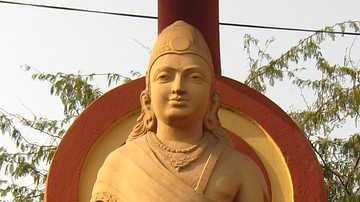
Definition
Chandragupta Maurya
Chandragupta Maurya (c. 321 - c. 297 BCE), known as Sandrakottos (or Sandrokottos) to the Greeks, was the founder of the Maurya Dynasty (4th-2nd century BCE) and is credited with the setting up of the first (nearly) pan-Indian empire. Aided...
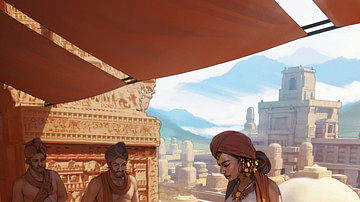
Image
Mauryan Empire Palace Scene
Artist's impression of a palace scene in the Mauryan Empire of India. Created by Amplitude Studios for the video game Humankind.
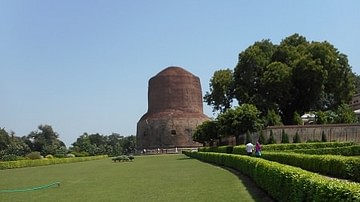
Image
Dhameka Stupa, Sarnath
The Dhameka Stupa, as seen from the Dharmarajika Stupa. The Dhameka Stupa was built during the Mauryan period (3rd century BCE) and enlarged in the 11th century CE. It is said to mark the spot where the Buddha gave his first sermon to a group...
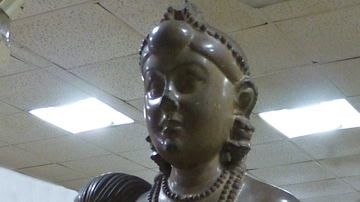
Image
Didarganj Yakshini
Life-sized, monolithic, polished sandstone sculpture of a female figure, identified as a yakshini, from the Mauryan period, now housed at the Patna Museum, India.
Didarganj, Bihar, India, 3rd century BCE
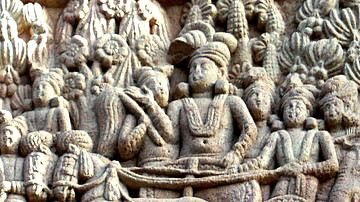
Definition
Ashoka the Great
Ashoka the Great (r. 268-232 BCE) was the third king of the Mauryan Empire (322-185 BCE) best known for his renunciation of war, development of the concept of dhamma (pious social conduct), and promotion of Buddhism as well as his effective...
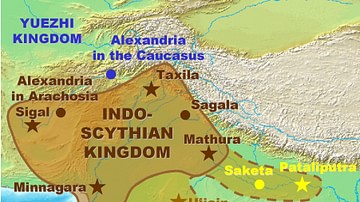
Definition
Ancient India
India is a country in South Asia whose name comes from the Indus River. The name 'Bharata' is used as a designation for the country in their constitution referencing the ancient mythological emperor, Bharata, whose story is told, in part...

Image
The Mauryan Empire, c. 321 - 185 BCE
A map illustrating the rise and expansion of the Mauryan empire, the first pan-Indian empire that covered most of India and parts of present-day Iran. Chandragupta Maurya, the first ruler, seized the opportunity created by the power vacuum...

Image
Statue of Mauryan Emperor Chandragupta
Statue of Indian Emperor Chandragupta (r. 322-298 BCE), founder of the Mauryan dynasty. The statue is located at the Laxminarayan Temple in New Delhi, India.
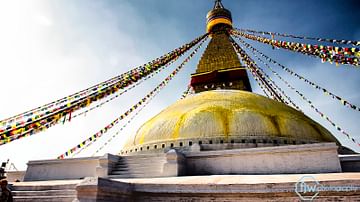
Definition
Stupa
A stupa (literally “heap” or “pile”) is a reliquary, a shrine containing the remains of a holy or sainted person and/or artifacts (relics) associated with them, originating in India prior to the 5th century BCE as tombs of holy men and evolving...